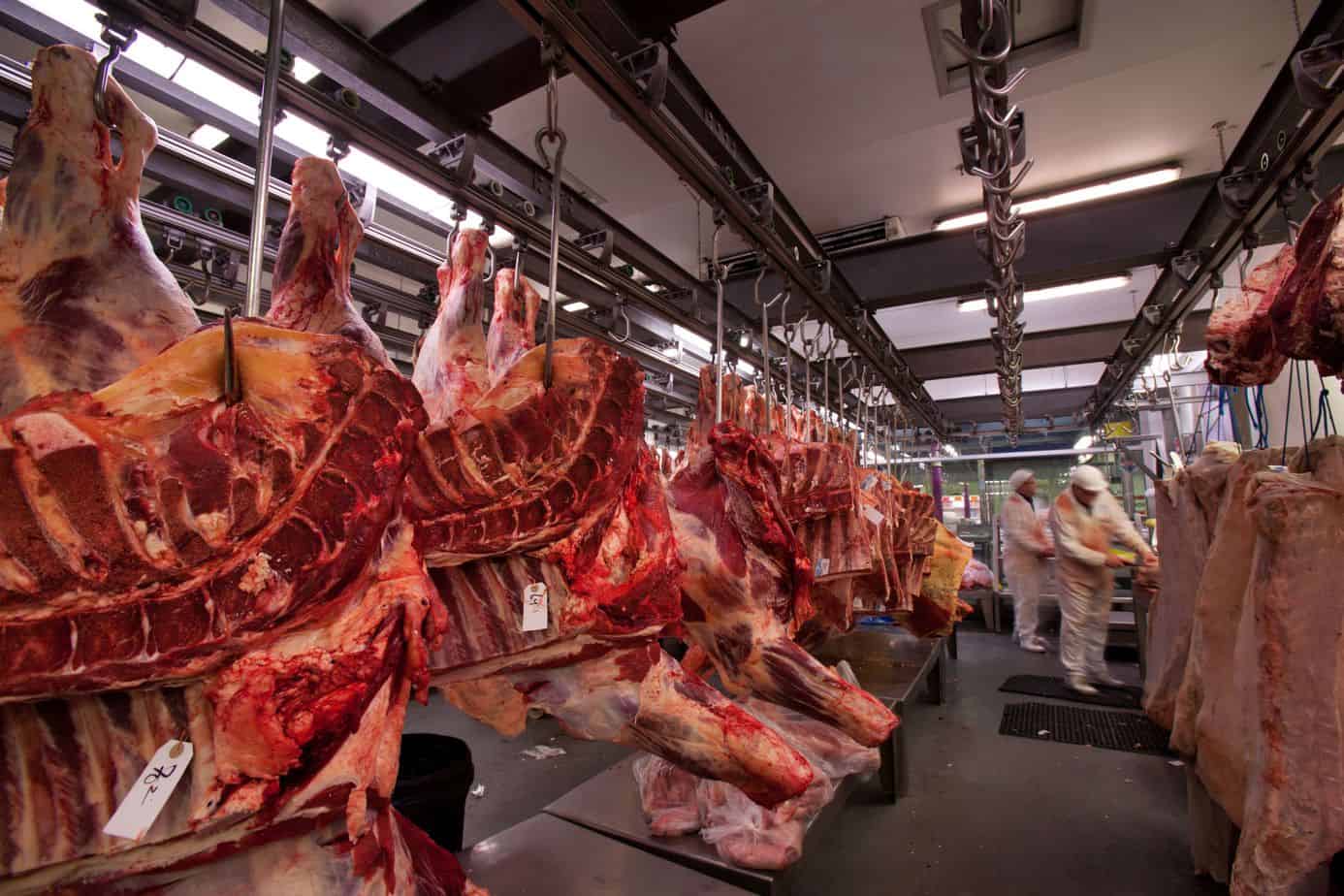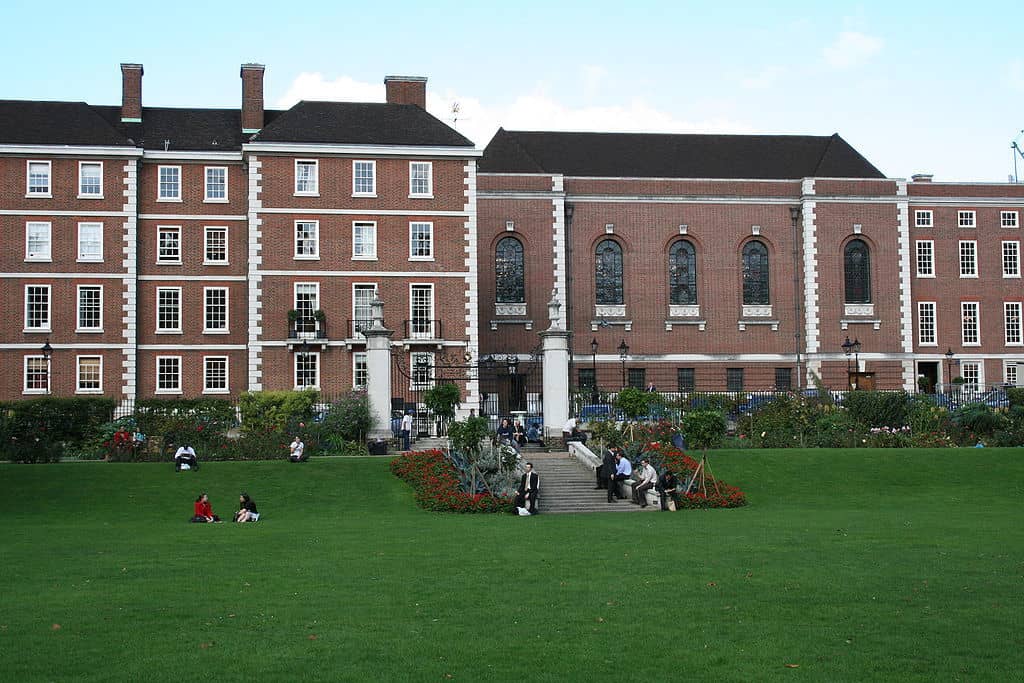
Few pockets of the Square Mile appear more distinct from each other than that of the Inner Temple and Smithfield Meat Market. One home to the Bar, the other to the City’s best cuts of beef. One is at the southernmost tip of the Square Mile boundary, while the other is up north. And yet both fall within its largest ward, Farringdon Without, and therefore under the jurisdiction of its brand new alderman, Gregory Jones QC.
“Historically, the ward was certainly the most diverse in terms of trade and that still rings true today,” Greg says from his office in the former corner – Inner Temple’s Francis Taylor Building where he has worked as a barrister for the last 25 years. “The meat traders at Smithfield; healthcare professionals at Bart’s; traders at the Silver Vaults; retailers, publishers, high quality niche banks and consultancy businesses; as well as the barristers and solicitors.”

Such diversity is surely a strength of the ward, but it also presents its own set of challenges, among them a legal sector that Greg admits “hasn’t been as engaged with City life as it could have been”. Add to that Smithfield’s continued operation amidst the area’s rapid gentrification, the threat to the future of the Silver Vaults, alongside broader pollution and congestion issues faced by the City as a whole and you are left with a large chorus of voices to harmonise.
Come 9 March, that will be Greg’s job. As Alderman he will sit on the City of London’s Court of Aldermen as the senior elected representative for Farringdon Without, heading up a team of 10 members of the Court of Common Council, who will be decided during City-wide elections next month.
Greg has served on the Common Council since 2013, applying his professional expertise in planning, environmental, European Union and local government law to the council’s planning and transportation committee, as well as the streets and walkways, benefices and corporate asset sub committees. One of the few practicing barristers serving the City in local government (only one barrister, Sir Gavyn Arthur, has been Lord Mayor since 2000), Greg has made it a priority to get those in his profession more engaged with the work of the Corporation.
“I think the nature of the Bar can be all-consuming, which is why the legal sector hasn’t been as involved in the past,” he says. “Geographically, of course, we’re right on the edge [of the Square Mile] so we perhaps haven’t thought of ourselves as a real part of the City in the way that other professions might have done.”
That mindset seems to have changed, at least in recent times, with voter turnout for the 8 February alderman election nudging 17.5%, compared with roughly 10% in previous polls.
The increase in engagement could be attributed, at least in part, to last year’s controversy over a move to close Tudor Street – a major access point for the Inns of Court – to vehicles to make way for the Cycle Superhighway through Blackfriars. As a common councillor, Greg led a successful campaign from the Inns’ top barristers to overturn the decision, arguing it would prevent access for production companies and catering and maintenance services.
And while the Inns’ role as a film set and party venue is safe, at least for now, Greg is convinced the legal sector has a renewed sense of purpose within the Square Mile following Britain’s decision to leave the European Union, one he, like much of the City, maintains is “a mistake”.
“Post-Brexit I think it’s vital that the voice of the legal sector is heard just as loudly as other sectors within the City and I’m going to make sure we have a seat at the table,” he says.

“Common law is going to be an important commodity as we leave the European Union, and crucial as we build links with Commonwealth nations.” But it’s not just the bigger picture issues where Greg intends to make his presence felt; indeed he makes clear his derision towards those in local government positions who tend to “grandstand, and attend lots of dinners” rather than push for meaningful change.
At a more practical level are concerns over April’s business rates hike for the thousands of SMEs in his ward and the long-term future for the historic Silver Vaults on Chancery Lane, which he will petition to have brought under a “special policy area” retail planning restriction in the next City Plan, much like Westminster has done for Savile Row and Jermyn Street.
He also has plans to strengthen ties with the Square Mile’s neighbouring borough to the west, though admits he could butt heads with some on the council through his objection to the construction of Garden Bridge between Waterloo and Blackfriars. “Look, it seems like a nice idea, but the more you dig down into it, the more I tend to think that any underwriting by the public purse probably won’t be viable so I am reluctantly opposed to it,” Greg says of the controversial project.
“There are so many other traffic issues and we need bridges on the east side of London – it shouldn’t be a priority.” But though planning and policy issues seem to be dominating the agenda in Farringdon Without before Greg has even officially stepped up to the plate, one legacy he does want to leave behind goes back to the ward’s diversity.
“London is like a series of villages, which is one of the city’s great strengths, but there’s also the risk of people existing in their own little hubs,” he says. “I’d like to create forums that bring together different stakeholders, experts in their various fields, to produce influential thinking.
“The City does a great job bringing people together at a macro level, but I think there’s a real opportunity to engage all of this expertise at ward level and see some great results.”






